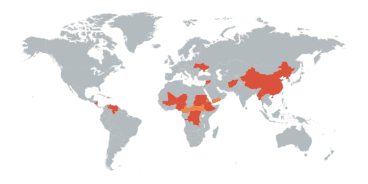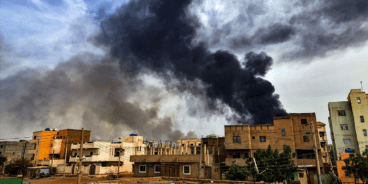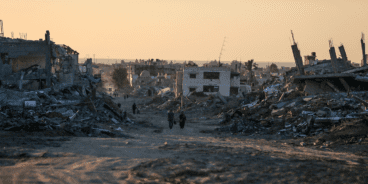
Statement on the One Year Anniversary of South Sudan’s Independence
On 9 July 2011 South Sudan gained its independence, becoming the 193rd member of the United Nations (UN).This should have paved the way for a period of peace and stability in Sudan and South Sudan following two brutal civil wars which left millions of civilians dead. Instead, during the past year we have seen the commission of mass atrocity crimes stemming in part from the failure of both countries to address outstanding issues from the Comprehensive Peace Agreement (CPA). Following South Sudan’s independence, momentum towards full implementation of the CPA has been lost.
In the months prior to South Sudan’s independence concerned parties, including the Global Centre for the Responsibility to Protect, issued warnings that there could be a return to large-scale violence if the status of South Kordofan, Blue Nile and Abyei were not resolved, as required under the CPA. The outbreak of significant fighting between Sudan and South Sudan in Abyei during May 2011 resulted in the displacement of over 110,000 civilians. The international community responded quickly to mitigate the violence by deploying a UN peacekeeping force.
Regrettably, such united international engagement to halt mass atrocities crimes has been lacking in South Kordofan and Blue Nile, where the Sudanese Armed Forces (SAF) have been fighting the Sudan People’s Liberation Movement-North since June 2011. Mass atrocity crimes have been routinely perpetrated by the SAF against civilians living in increasingly precarious conditions. Indiscriminate SAF aerial bombardments have entrapped hundreds of thousands of civilians in the Nuba Mountains while the Sudanese government has continually denied humanitarian access to the area. The government of Sudan is manifestly failing to uphold its Responsibility to Protect.
While not linked to the CPA, inter-communal violence in Jonglei State, South Sudan has left more than 2000 dead and displaced over 60,000 people in 2011 and early 2012. The government of South Sudan, faced with weak institutions and capacity gaps, struggled to address the crisis. Increased international assistance, especially via the UN Mission in South Sudan, is required to strengthen the government of South Sudan’s efforts to uphold its Responsibility to Protect.
The situations in Sudan and South Sudan are dire and protracted conflict between both states is thwarting the possibilities of a lasting peace. Immediate action is required to halt the commission of mass atrocities, hold perpetrators accountable and push all parties to negotiate a comprehensive resolution. After a year of low activity and a lack of attention to the deteriorating crises in South Kordofan and Blue Nile, the African Union’s “Roadmap” and UN Security Council Resolution 2046 represent a renewed sense of awareness about the magnitude of the challenge facing Sudan and South Sudan.
While it is right to celebrate the anniversary of South Sudan’s hard won independence, we should not forget those people that the CPA left behind. Long suffering civilians in South Kordofan and Blue Nile cannot wait another year for humanitarian assistance and a halt to mass atrocity crimes.
Related Content


